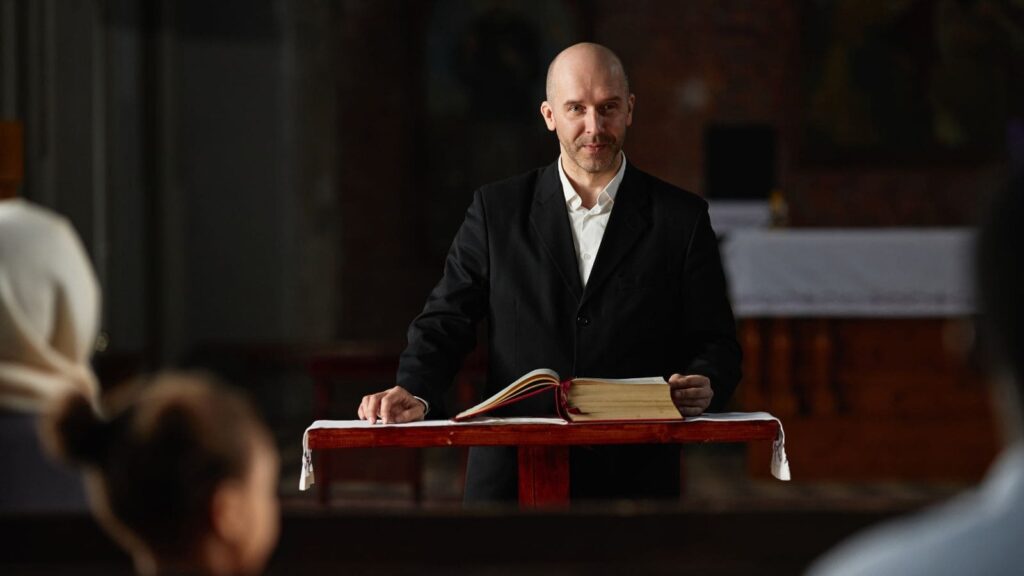When we think about the decline in church attendance, our minds often go to the increasing disillusionment among young people with religion and religious organizations. However, it’s not just the youth—many older adults are also spending less time at these institutions. This list uncovers 17 reasons why numerous boomers are choosing to skip church.
Increased Travel and Mobility

A lot of people begin traveling more frequently after they retire, leaving less time for other activities such as church attendance. Others may decide to live in multiple different locations throughout the year, which can interrupt their religious routine.
The Digital Divide Impacts Engagement

Technology is always evolving, and recent events, such as the pandemic, have prompted many religious organizations to hold their services online. While this can be more convenient for some people, according to Salt and Light, a lot of older people find it difficult to adapt to the technology. Others find the experience to be less connecting and spiritual.
Shifting Priorities in Later Life

As human beings, we’re always growing, changing, and evolving, so it’s unreasonable to expect that our actions and options will always remain the same. A lot of boomers start skipping church simply because they start prioritizing other areas of their lives, such as travel, leisure activities, and other forms of spiritual expression.
Disenchantment with Institutional Religion

It’s not just young people who are beginning to feel disillusioned by institutional forms of religion. Some boomers have become increasingly disenchanted by mismanagement, scandals, and a lack of relevance to modern societal issues and concerns.
Health and Mobility Concerns

As we age, our bodies don’t always cooperate as well as they used to. Unfortunately, some churches aren’t properly equipped to accommodate people with mobility and health issues, which can make it more difficult for them to attend. Others may find it difficult to find methods of transportation that help them attend regularly.
Political and Social Views Clashing

Many people, including boomers, feel that there is a sense of political polarization within church settings, which can be off-putting to some. Furthermore, some older adults end up feeling like many church teachings conflict with their personal opinions and beliefs when it comes to social issues.
Generational Shift in Beliefs

Similarly, there appears to be a wider generational shift towards questioning traditional religious institutions and beliefs openly. There are many reasons for this, but one of they key ones is the increase in people’s exposure to different viewpoints and spiritual ideas.
Economic Factors

People who have a fixed, limited income may feel less able to spend money on donations and other expenses associated with regular church attendance. Economic downturns also often affect seniors more than other generations, meaning they may have to prioritize more essential needs.
Desire for Community Elsewhere

A lot of boomers are becoming more involved with communities outside of religious settings, including groups, clubs, and online spaces. These options sometimes feel more convenient, comfortable, or connected than church attendance, meaning they may be prioritized more heavily.
Changes in Family Dynamics

Traditional family dynamics such as Sunday gatherings are becoming less and less common in today’s modern society. One result of this is that families are less likely to attend church together, which can also make older adults feel less motivated to go on their own.
Lack of Engaging Content

Some boomers may feel like sermons and other church activities no longer resonate with their interests and stage of life. Over time, people sometimes find that church teachings become repetitive or lacking in depth, making them more likely to look for other forms of spiritual expression.
More Focused on Personal Development

It’s great to strive for personal growth and development, as this can help you in many areas of your life. However, depending on your perspective, one potential drawback is that time invested in hobbies, classes, and other communities can take away from the time you spend at church.
Exhaustion with Ritual

Some older adults feel like religious rituals no longer give them the same sense of comfort or relevance they used to. This can make them less likely to attend church and more likely to seek out their own personal forms of spiritual practice and connection.
Preference for Solitude in Spirituality

On a similar note, according to Christianity Today, a significant number of boomers prefer to find spiritual fulfillment in their own company rather than busy church gatherings. This reflects a larger movement of appreciation for solitary meditation and reflection, such as nature-based spiritual practices.
Perception of Church as Outdated

While younger people may expect that all boomers love the old-school, traditional nature of certain churches, this is not the case for everyone. Some older individuals are beginning to see the church and other religious institutions as outdated and irrelevant to modern social and global issues.
Quest for Inclusivity

Likewise, it’s not just young people who are starting to see church settings as overly restrictive and unwelcoming to certain groups of people, such as the LGBTQ+ community. Some boomers believe that their local churches are not doing enough to create an atmosphere of inclusivity and diversity for people from all backgrounds.
Impact of the Internet

The rise of technology and the internet has made it much easier to access all kinds of information, ideas, and perspectives. One side effect of this is that some people adopt new beliefs and practices that cause them to shift away from traditional religious institutions. A large number of older people are now using online communities and services as an alternative to traditional church attendance.







